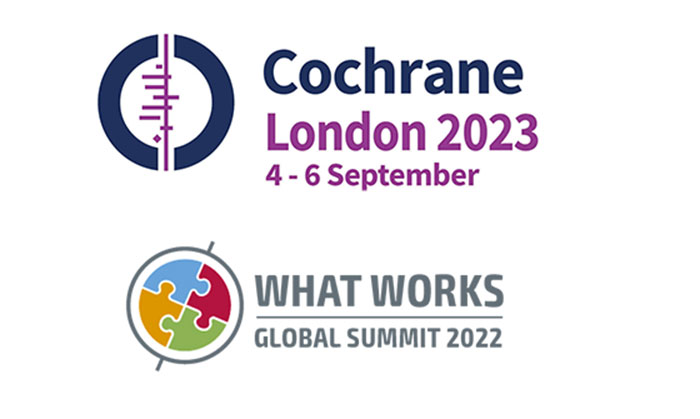The latest research project spearheaded by Marymount University’s Center for Optimal Aging, focusing on racial health equity and funded by the Robert Wood Johnson Foundation, has been accepted at two notable international science conferences – the 2023 Cochrane Colloquium in London and the What Works Global Summit in Ottawa, Canada.
The prestigious international conference held by Cochrane, the leading global provider of health evidence synthesis guidelines, will take place in early September and focus on the promotion of evidence-informed health care and the discussion of major global health questions. The What Works Global Summit, meanwhile, is the largest of its kind and brings together researchers, leaders in evidence-based decision making and practitioners to share the latest evidence, research methods and practice strategies for improving the lives of individuals, families and communities worldwide. It will be held in mid-October.
The project, ‘Defining Racial Health Equity: A Landscape and Systematic Review Protocol of Definitions, Terminology and Related Concepts,’ was led by the Director of the Center for Optimal Aging, Dr. Patricia Heyn, and researchers Mahederemariam Dagne and Elizabeth Terhune. It focuses on defining, analyzing and homogenizing terminology, concepts and frameworks surrounding racial health equity – an important and growing concept in health policy and research. The project evaluation includes the websites of public health organizations, theoretical research and systematic reviews on interventions to promote health equity across racialized groups.
“Inequities in health exist within the U.S., particularly across racial groups. Health equity has become a priority of the U.S. government and major health organizations – however, a consensus is lacking on definitions of racial health equity,” Dr. Heyn explained. “Mapping racial health equity concepts is a first and crucial step to advancing health equity and health justice for racially minoritized groups. Our goal is to create a common language for us to be able to apply, use and measure racial health equity constructs across many disciplines and conditions, with the ultimate goal to unify research efforts.”
Co-investigators on this research project include Omar Dewidar, Tiffany Duque, Dr. Damian Francis, Colleen Ovelman, Christi Piper, Ana Pizarro, Dr. Dru Riddle, Dr. Anita Rizvi, Nila Sathe, Dr. Meera Viswanathan and Dr. Vivian Welch, as well as Marymount site consultants Dr. Tamara Baker and Dr. Robert Turner II.





